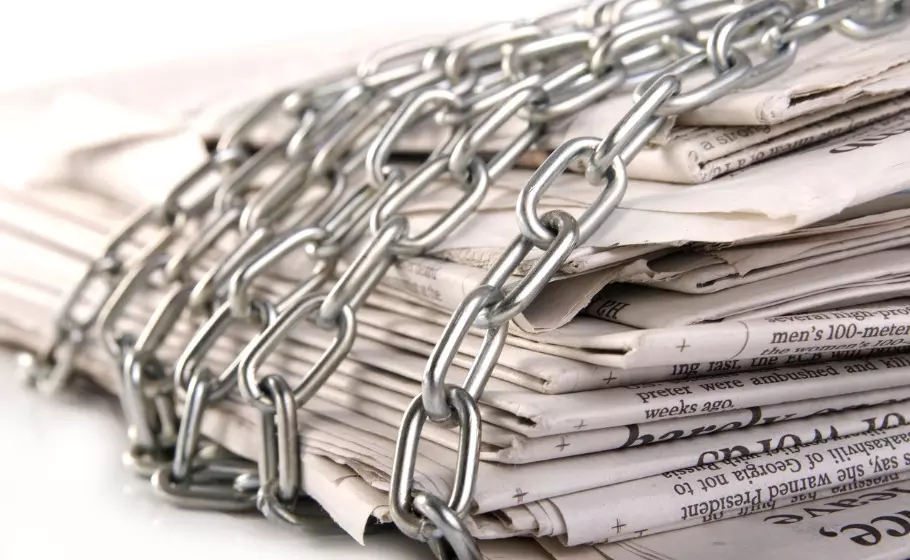
Indian journalist bodies call for halt to persecution of media workers
The demand charter points out that the past five years have been the most dangerous for journalists and journalism in India

Four groups representing some 10,000 journalists across the country have called for an immediate end to the persecution and harassment of media workers and steps that will again revive India’s once thriving free journalism.
The journalist bodies have submitted a 14-point memorandum capsuling the state of the industry now and the way ahead to MPs and leaders of political parties as the winter session of parliament begins.
The four groups are the National Alliance of Journalists (NAJ), the Delhi Union of Journalists (DUJ), the Kerala Union of Working Journalists (KUWJ) and the Andhra Pradesh Working Journalists Federation (APWJF).
The demand charter points out that the last five years have been the most dangerous for journalists and journalism in India, whose ranking in the Freedom of Press Index now stands as low as 161 out of 180 countries.
“Several journalists, including eminent editor Prabir Purkayastha, are in jail for exposing this government and the forces that control this government,” it said.
Arrests, cases
“Journalists such as Siddique Kappan are facing criminal charges, including UAPA charges, after spending years in prison. In Kashmir, many journalists such as Fahad Shah, Sajad Gul, Irfan Mehraj, Aasif Sultan and Majid Hyderi have been arrested while most other journalists live in fear.
“Since 2010, as many as 15 journalists and two media managers have been charged under UAPA, seven are still behind bars. Sedition charges have been filed against leading journalists like Vinod Dua, Mrinal Pande, Rajdeep Sardesai and others.”
It added that defamation charges have been slapped against journalists like Paranjoy Guha Thakurta, Ravi Nair and many others. Raids on media, seizure of electronic devices and harassment of media employees are becoming another menace, it said.
The unions raised deep concerns about the weaponization of sections of the media. “A rabid communal agenda has divided and polarized the people, threatening the unity and integrity of the Indian state. We hold the corporate media, particularly TV channels and their anchors and editors, culpable for these divisions and fissures in society as much as politicians.”
The journalist bodies have raised 14 points for consideration:
Unjust rules
1. A law to protect journalists from arbitrary arrests and malicious prosecution is needed. Journalists cannot be treated as terrorists.
2. A recent amendment to IT Rules gives not just the Press Information Bureau but also all Union government ministries and departments the powers to demand that news they object to be taken down by social media companies. Rules aimed at censoring the small, independent digital media be withdrawn immediately.
3. Early setting up of a common Media Council for print, electronic and digital media, with representatives from the media, media unions and independent public persons.
4. Setting up of a Media Commission to study the entire media and to recommend remedial measures in view of sweeping changes and the deplorable condition of journalists and non-journalists.
5. Putting responsible checks on cross-media ownership.
6. Immediate steps to help the growth of national language news and feature agencies through a National Newspaper and Feature Agencies Development Corporation.
7. Repeal the four labour codes. Restore previous pro-labour legislations. Restore the two working journalists acts with a simple amendment to include broadcast and digital media.
Wages, pension
8. Implement the last Wage Board recommendations as per the Supreme Court ruling of February 2014. Set up fast track courts with time bound implementation in view of pendency of cases. Constitute a new Wage Board at the earliest.
9. Introduce a proper risk Insurance cover for media workers and their equipment as well as a decent pension scheme. Currently, the contributory pension journalists get is a pittance, seldom more than a couple of thousand rupees.
10. Ensure a one-year package to the United News of India to help sustain regular payment of long delayed salaries and payments to retrenched employees including gratuity and other dues. The once virtually self-reliant UNI Urdu news service is barely surviving, amidst celebrations of 200 years of the Urdu press. End attempts to discriminate against another premier national news agency, PTI.
11. India’s record of imposing Internet bans is the worst in the world, with 741 shutdowns from 2012 to July 2023. Shutdowns seriously impede the work of journalists who are unable to send their news reports, stories and photographs at such times.
End harassment
12. Laws relating to sedition, defamation and arbitrary detention like the UAPA are increasingly misused to arrest and prosecute journalists. Journalists have been booked even for tweets and Facebook posts. These laws should be reviewed and repealed to prevent their misuse.
13. Given the increasing tendency of media companies to outsource work, provisions need to be made for freelance journalists, stringers and consultants to ensure that payments by media companies are both timely and adequate.
14. Lastly, but most importantly, release all the journalists, academics and activists arrested arbitrarily.

